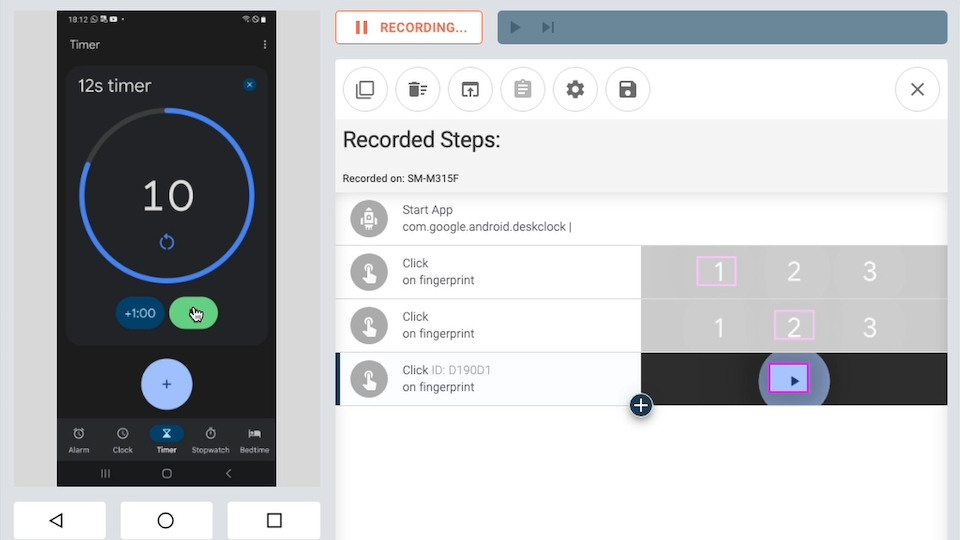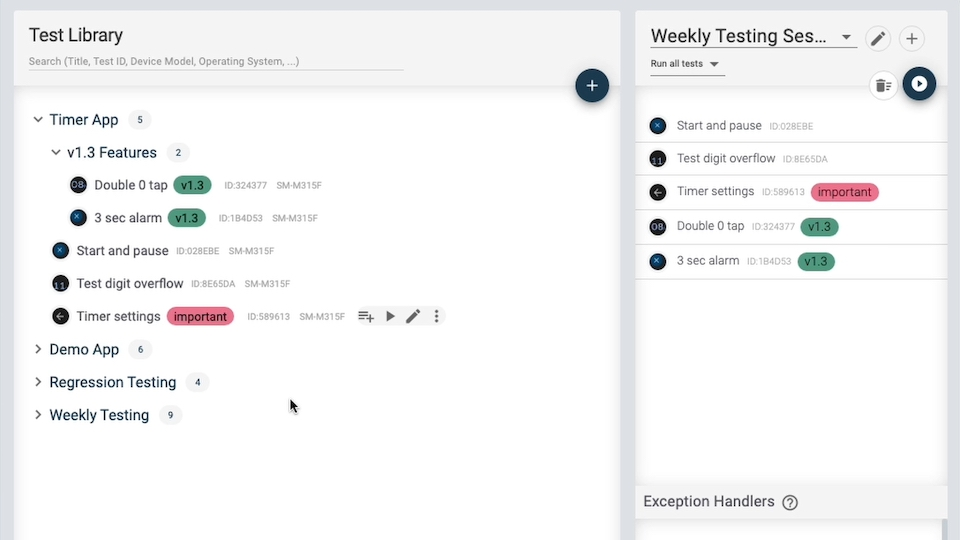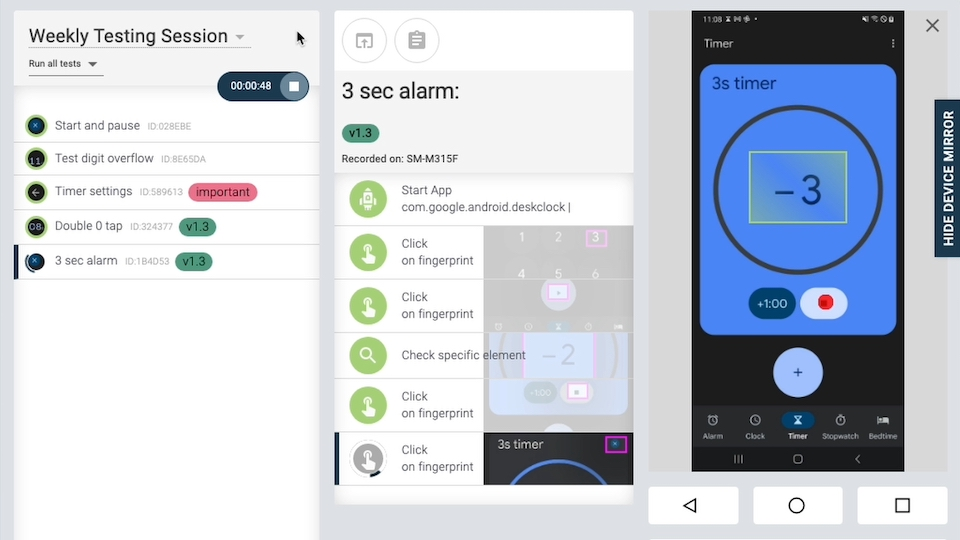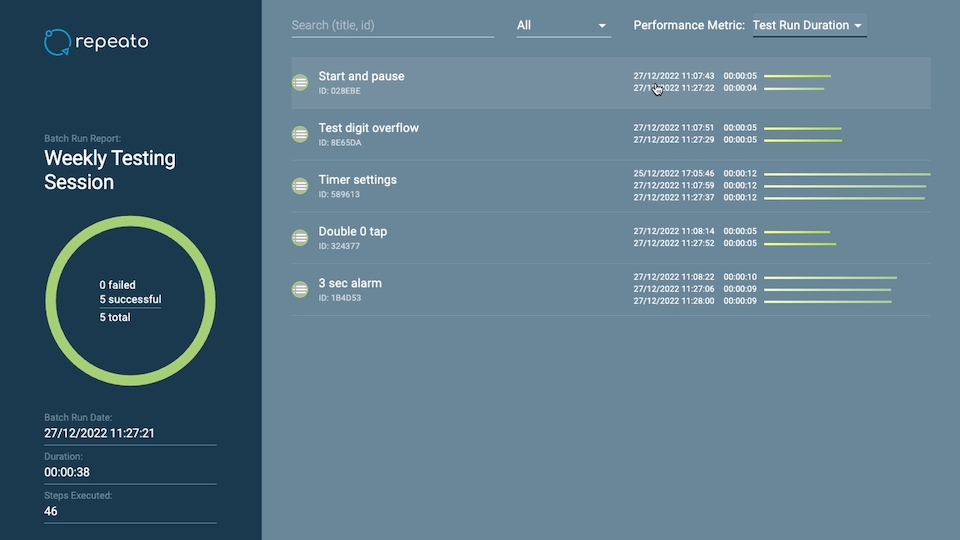Create robust UI tests for iOS, Android and Web. Automate tedious mobile app testing using physical devices. Simple, speedy, and even without coding skills.

Just connect your test device or simulator, and hit the record button.
Your mobile app is mirrored on your desktop and you can seamlessly interact with the mobile UI. All input actions are recorded. When you are done, just save the test to the library.
Repeato supports a wide range of frameworks: Flutter, React Native, Xamarin, Unreal Engine and many more.
Repeato allows you to organize your app tests in folders and batches. An intuitive UI helps you to structure your test library the way you want. And to find tests when you need them.
Checking for regressions in your newest application release becomes the matter of literally pressing a single button.


Time for regression testing:
Just select a batch and hit “run”.
Repeato executes all your tests and lets you know if a test failed. The tool optimizes the timing of execution, so tests are run as fast as possible and as slow as necessary. This is made possible by our revolutionary computer vision and machine learning algorithm.
Documenting and communicating bugs can be difficult and time consuming.
Repeato provides useful features to speed up the process. Test run exports easily find their way into your bug tracking system, streamlining the communication between testers and developers.


You want to run your tests on every pull request? No problem! Use the Repeato CLI headless testrunner to run tests in the cloud. On Github Actions, BitRise, CircleCI, codemagic, or even on your own server.
Repeato supports a wide range of application frameworks on local devices and cloud devices!
Download Repeato now and test your mobile apps for free!
Download for free
Check out our comprehensive FAQ section or book a call!
FAQ
Book a call
